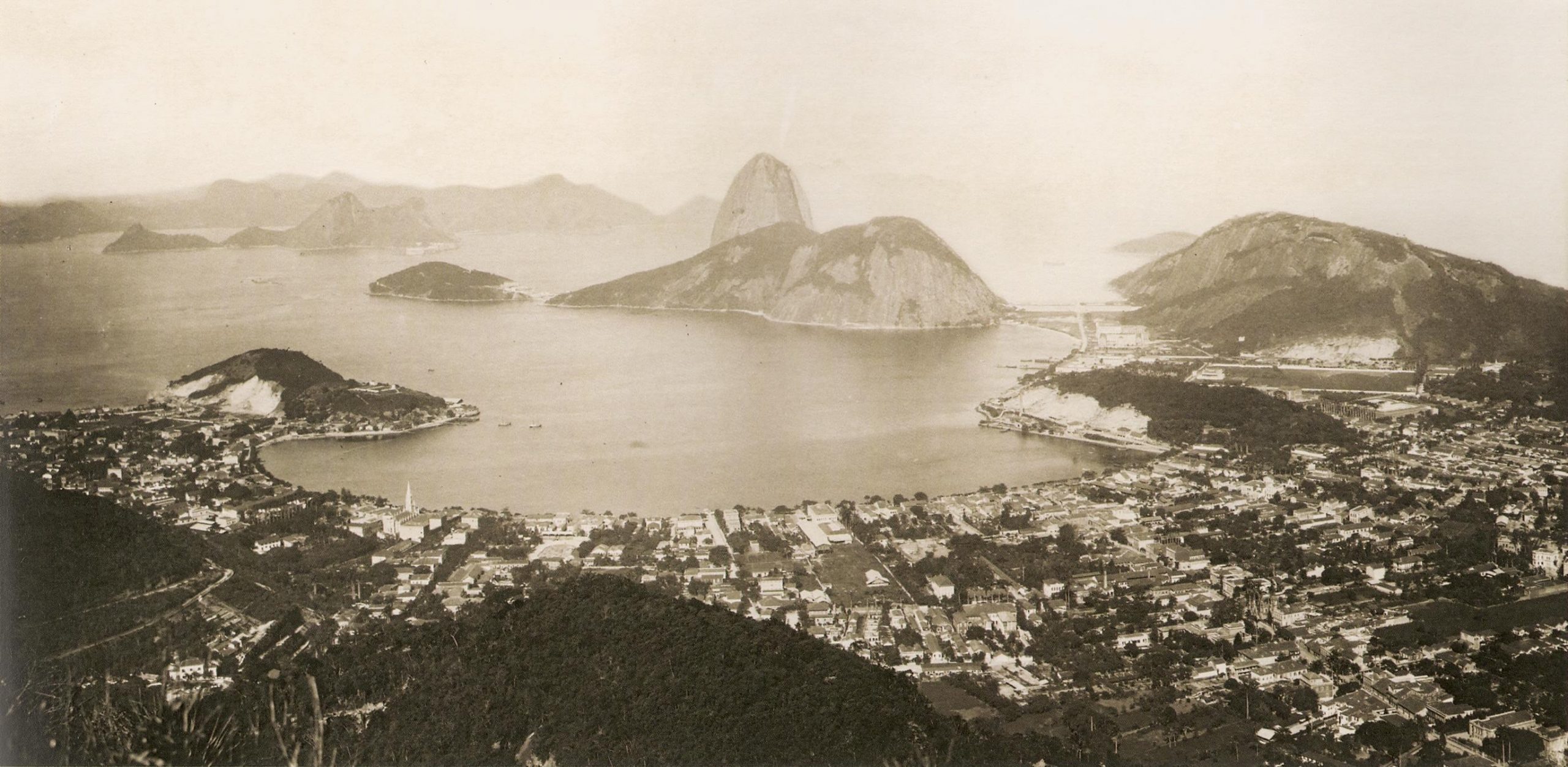25
On headed notepaper:
SHIFFMANN & MEYER
RIO DE JANEIRO Por……………………………………………..
E
HAMBURGO Rio de Janeiro,..27th de August..de 1890
ENDEREÇO TELEGRAPHICO Caixa 117
“SCHIFMAST”
My dear Mother,
I wrote you by the “Iberia” which sailed two days ago. I am now sitting in the office waiting for a customer who said he would come at 11 & as he is not likely to turn up before 12, if at all, I may as well employ the time in inking a sheet of Messrs. Schiffmann & Meyer’s letter paper.[1]
I expect the Pater will by this time be about starting for his Russian trip, & wishing he could stay at home. I hope things will go well with him & that his trip will be a short one. I would rather he could make a yearly holiday tour than a business one.[2]
The rain is falling steadily & rather dismally today; still the plants & trees in the public squares look fresher, & the hills cooler, & one can do without grumbling with one wet day in a fortnight.
Telegrams announce great want in Ireland owing to the drought, the wet spring seems to have been followed by a dry summer.
Mr Ree is now quite well again & no longer takes his meals in the sitting-room, but comes to the dining room, where we have a small table for ourselves. He often asks if I have news from you, & the other evg. drank to the good health of you & the Pater in a glass of Burgundy. He tells me he frequently goes to Leeds or Manchester. I told him he might very well come across the channel & pay us a visit.
Last week I was out almost every evg. On Wed. a Mr Salomon, stockbroker, to whom I had been introduced, took me to see his pictures & afterwards gave me a very good dinner. On Thursday I dined again at Gottos & went with them to the theatre to see Coquelin. On Friday I dined with a Mr Lucius, an American German & a very nice fellow, at a boarding house where he lives with half a dozen young Englishmen, he being President at the dinner table etc. & after dinner we took a long walk over the hills.[3] It was a bright moonlight night & the way wound far above the town, beyond the pretty suburb of Larangeiras & Santa Theresa (I think Larangeiras means “orange grove”).[4] The bright lights of Rio at our feet, & the Bay with the distant hills in the “moonbeams misty light” formed a lovely scene.

On Saturday evg. I was at a ball given by the English Cricket Club, a very successful affair; – string band between the two dancing rooms, a “full house” with many pretty dresses & dressed.[5]
On Sunday I wrote letters all day. I have contributed generously to the Postal Revenue of Rio, but I don’t want to send many more letters from here. In a few days I hope to be off to Bahia; – thence Pernambuco & home.
Best love to all.
Jack
- I imagine these are yet German commercial agents – but can find no information on them ↵
- "The Pater’s annual trip to Russia" – where did he go/ how/ and who did he trade what with. It looks like Russia was an important source of flax for the manufacture of linen in Ireland. Was that what his trips were about? In the late 19th and early 20th centuries, linen was very significant to Russia and its economy. At one time it was the country's greatest export item and Russia produced about 80% of the world's fiber flax crop. Or was Russia just another market for the products that Moore & Weinberg produced, as implied by Isaac Weinberg's self-published autobiography (http://dx.doi.org/10.17613/ch97-0r17)? https://en.wikipedia.org/wiki/Linen#Modern_history ↵
- Could not identify Mr Salomon the stockbroker, nor Mr Lucius the American German. ↵
- Laranjeiras (Portuguese: orange trees) is an upper-middle-class neighborhood located in the South Zone of Rio de Janeiro. https://en.wikipedia.org/wiki/Laranjeiras ↵
- English cricket club in Rio de Janeiro: Cricket in Brazil began in the mid-1800s in Rio de Janeiro, during a period when a portion of the city’s population was British or of British descent. By the early 1860s, a number of cricket clubs were in operation, including the British CC, Artisan Amateurs CC, Rio British CC, Anglo-Brazilian CC and the British and American Club. In 1872, George Cox formed the Rio Cricket Club, which soon began using the field as its home. In the early 1880s, George’s son Oscar organized Brazil’s first football games on this same ground. In 1889, Brazil became a Republic and Princess Isabel was forced to move from her residence. The cricket ground was taken over by the new government, and although the sport was allowed to continue for a time, a permanent facility was now required. https://en.wikipedia.org/wiki/Brazilian_Cricket_Association ↵
